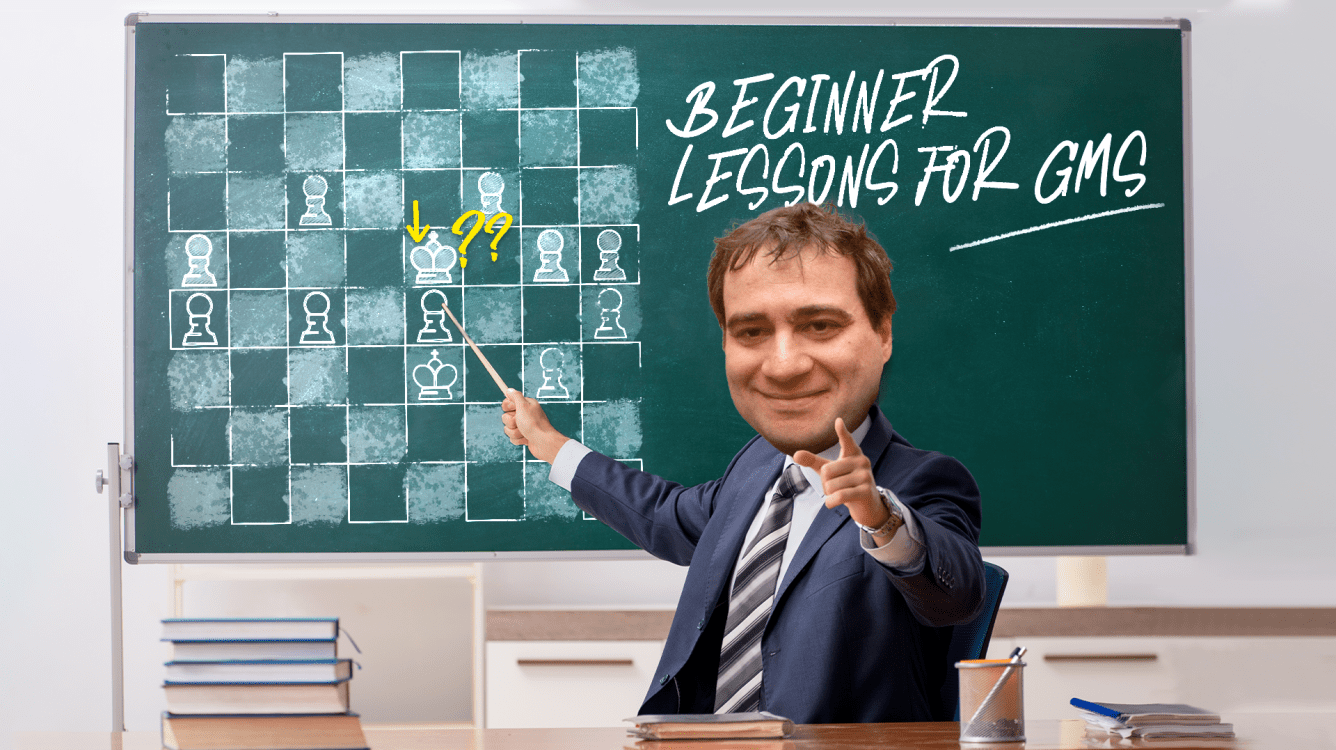
Never Make These Mistakes!
Mistakes are an integral part of the game of chess: everyone makes them, even supercomputers! Yet, you should be able to avoid certain kinds of blunders easily. For instance, when you start in chess and learn about Scholar's Mate, then there is no excuse if you still get checkmated this way. You can blunder your queen in the very beginning or get checkmated on move 12, but you still shouldn't get checkmated in four moves by the Scholar's Mate!
To put this concept a different way, if you are asked what's 27 times 72 and make a mistake, it is understandable. However, if you are asked to multiply 4 by 7 and make a mistake there, it is inexcusable since you are supposed to know a multiplication table by heart.
Just like a multiplication table, there are some chess concepts any player should know by heart. For instance, when as a little kid, I signed up for a chess club in our local Pioneer Palace, they needed to determine what group I would belong to. So, they gave me just one position.
I didn't know anything about this kind of endgame and naturally didn't find the only winning move 1.Ke3, so I was promptly sent to a beginner's group. Indeed, only a beginner wouldn't know this kind of endgame by heart. By the way, if you are not sure how to play this endgame, you can practice it here.
After I joined our chess club, I learned that in this basic king and pawn endgame, it is all about the opposition, and if the defender wins the opposition they should be able to make a draw. Nevertheless, when I played a friendly game against my clubmate, it unexpectedly failed me!
I ran to our coach, yelling that my friend had just "refuted" opposition. The coach smiled and explained that if the king reaches the sixth rank for White or the third rank for Black and he is ahead of a pawn, then the opposition becomes irrelevant, and the pawn will promote. I remembered this lesson for my whole life. Many years later, I saw something similar in The Batsford Chess Encyclopedia by Nathan Divinsky. Here is a position from the book.
The book says: "if it is Black's move, then White has the opposition, and if Black moves his king then White will advance his king and be able to queen his d-pawn. However, Black can play 1...h3, and now he has the opposition. Black can then keep the opposition and draw the game."
If the author of the book played my friend who "refuted" the opposition, he would know that Black is completely lost regardless of whose move it is. As a matter of fact, both pawns on the h-file are irrelevant since White wins even if we remove them! Of course, mistakes like this are inexcusable since it is truly the ABCs of chess and you should know it by heart.
A similar example of an inexcusable mistake happened recently in a very high-level game. You know that I follow games played by Uzbek players. Therefore, I couldn't miss the following encounter, which was extremely important for the final outcome of the FIDE World Team Chess Championship.
At first glance, the game looks rather boring: the players quickly traded most of their pieces and entered a drawish endgame. Nevertheless, there was a very important moment that could change the outcome of the game instantly. It happened in the king and pawn endgame, can you spot it? If it is a difficult task for you, let me give you a hint. There is a well-known pattern, familiar to most experienced players. It happened in many games, so let me show you just three of them played by grandmasters.
Now I hope this pattern becomes as clear for you as a multiplication table, and you should be able to easily find an answer to the question about the first game.
It is amazing that two strong grandmasters misplayed a simple endgame so badly. You can argue that when they entered the pawn endgame, both players had less than 10 minutes on their clock. To me, it is not a good excuse. Would you be able to answer 4x7 in five seconds? There you are! It is all about knowledge! I think it is an enormous psychological pressure (the fate of the World Team Championship was being decided!) that made both players forget their 'chess multiplication table.' But I hope that you, my dear readers, will never make this mistake in your games!



